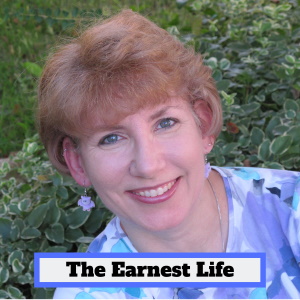A friend and I were having lunch when I told her about my inability to throw out an orchid. A gift, it had stopped blooming a few years ago, although putting forth healthy shoots. I gave my husband another orchid, but when he asked if I would get rid of the other one, I said no. After all, all the special needs animals seem to collect at my house. Why would I give up on a plant just because it no longer bloomed?
My friend introduced me to the stock purchase theory. I have her permission to relate it here.
The Stock Purchase Theory
If you are considering buying a stock, you decide partly on how much it costs now. You also take a look at what it has done in the past. When deciding to hang onto it, you have to consider if you would buy it again today, knowing about its performance since you purchased it.
In the Stock Purchase Theory of Reduction, you decide if you would buy the object today, at today’s prices, knowing what you know about the usefulness and the current state of the item. If not, it should leave your house.
Applying the Stock Purchase Theory
This theory has a lot of application to daily life.
Applying It to Clutter
The first application of this theory is to the stuff laying around my house. Applying the Stock Purchase Theory gives me one more way to consider the items I am assessing: Do I love it? Do I use it? Am I taking care of it? and now, Would I buy this today knowing what I know about it, in its current state?
I purchased a clock that had a temperature display on it. After getting home, I realized that you can’t have the clock and the temperature on the screen at the same time – you have to turn the device to the appropriate side to make the related information appear. I wouldn’t have bought this knowing that, so out it goes.
Applying It to Activities
The Stock Purchase Theory can also be applied to my activities. I can look at the involvements I have and decide if I would still get involved with them knowing what I know now.
Would I have gotten involved with the grounds committee for my church, knowing what I know now? No. So I resigned.
Applying to Relationships
This theory can also help me judge when it is time to let relationships change. I hang onto friendships far longer than I should, to the point where I am the only one putting in the effort.
Using the stock theory, I can decide which friendships need to pass into former friendships and focus my limited time and energy on the relationships that are mutual.
It has been very interesting to apply this new theory to simplifying my life. I keep finding ways to apply it, and it is making things a bit easier as I go through the on-going process of living a deliberate life.






4 Comments
How to Speak Japanese
I have done this with old books recently. I am kind of a bookaholic and cannot throw or give away a book after reading. As I ran out of space I sorted my old books depending on their conditon and started to sell them on Amazon.
Now I benefit from this in three ways
1) get rid of the old books
2) get some money to buy new books
3) have some exercise walking to the postoffice
Gary Robbins
I can throw most anything away WHEN I’M IN THE MOOD. What works for me is to stop and start cleaning right when that feeling comes on. Until then, it’s just rearranging!
Pingback:
Susan
This is great. Seems to incorporate, but go one step further, than the sunk cost fallacy and makes the idea easier to apply.